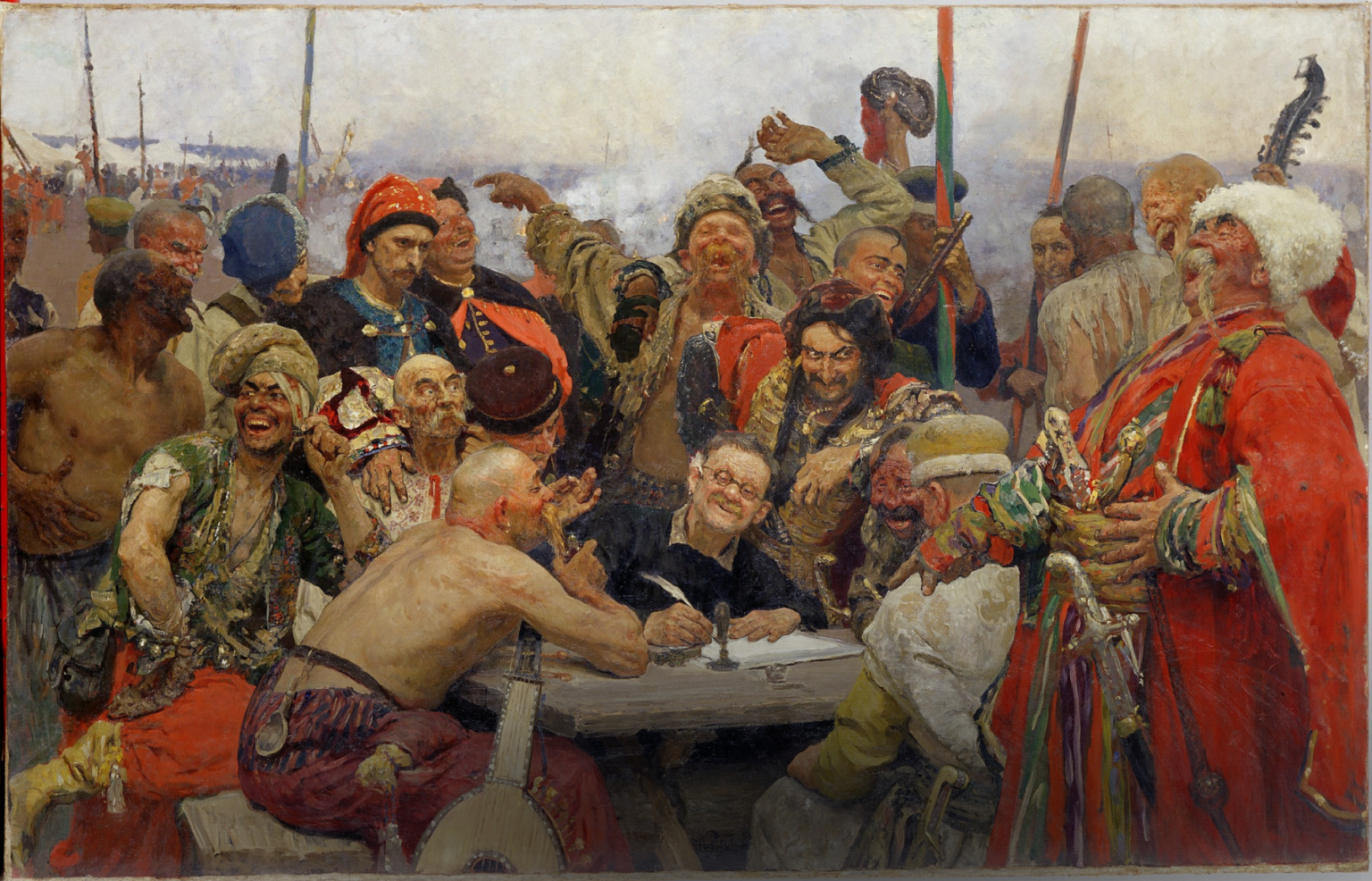This article is the written script of an episode from our podcast series: Kandelaa – Conversations.
( Bu yazı, podcast serimiz Kandelaa – Conversations’tan alınan bir bölümün yazılı metnidir. )
Cossack or Kazakh?… or am I confusing?
If you have ever read the work of Lev Tolstoy, “The Cossacks”, or run into songs sang by the Cuban – Cossack Choir while wandering around on Youtube, you might have wondered to whom this name is attributed. I look through folk songs to have a better grasp of countries’ traditions, and I suppose Cossacks are quite mentioned in Eastern Slavic songs.
Especially, I’m asking our Turki(c)sh audience listening to us, doesn’t it pretty much connotate the name Kazakh to ear, whom we may know more closely due to historical ties than people who haven’t heard much about them. My head was full of questions after my fresh cultural discovery which intrigued me quite a much that I did some quick research to quench this curiosity. Well, this is nothing unknown; I know it may sarcastically be heard so, but anyway.
First of all, it was necessary to clarify the confusion completely; because on the internet, you see bazillions of comments and ideas flying around- although there are always trustworthy sources on which we can depend, in parallel with what we know about the past. I know, the past- particularly when we lack proofs and clues- is a stable period but it continuously gains new units (moments) – what we discover adds up dynamism with new sensations to it. I stand by multiple historians and sources that come to an agreement by offering their own further details upon a subject.
The word Казак – according to various sources- originates in Turkic languages (I do not know which dialect of which era specifically). It follows a mutual root with the word “kaçak”; kaçak became Kazak initially, and then transferred to Russian in that new form. This word possibly stood out in European sources years before we encounter the words Cossack and its widespread use in other centuries. In the 13th century, the term appears in Cuman sources (Cumans were one of the Turkic people whose language is nowadays extinct) which supports the claims that accept that the term comes from “kaçak”. Also, Italian and Byzantine recordings, which concern the colonies on the Black Sea coast, cite the name Kazak as well.
By the end of the 15th century, the name acquired a wider sense and was applied to those Ukrainians who went into the steppes to practice various trades and engage in hunting, fishing, beekeeping, the collection of salt, and saltpeter, and so on.
(Please check: Encyclopedia of Ukraine)
The previous citation of the name and its origin does NOT imply that the Turkic Kazak people are Cossacks. No, they are discrete groups, even though both are known as dwelling in the Asian steppes (Russia- Ukraine and the Siberian steppes are the regions mostly related to these). Kazakhs, with an h in the end, are Turks.
Now, let’s come to the actual query: WHO are Cossacks?
I want to remind you once again; that we deal with the ancestors of modern Cossacks and their role during the Tzardom; rather than the modern era.
Let’s go back to the 16th century when the Russian Czardom was enhancing its political muscle, engendering negative impacts on the peasants. Having looked at the classes forming the whole society, this rank was already one of the lowest of all, and Tzar gaining his strength was now responsible for peasants being equal with slaves. Subsequently, brave people of this class fled from Russia and Poland to the one potential destination, – Tatar lands. Most of them are believed to have Slavic origins, but the Cossack units used to include Tatars as well. They settled in six different areas: the Don, the Greben in Caucasia, the Yaik, near the Ural River, the Volga, the Dnieper, and the Zaporozhian, west of the Dnieper.
Their settlements were laid upon the Don, Dnieper, Zaporozhian, Greben, Volga, and Yaik. In one march voiced by several choirs today, you can hear the lyrics mention the Don Cossack units gaining ground through the steppes.
Cossacks had certain rules for acceptance to their frame, such as being a significant warrior and believing in Christ. One considerable commodity of their lifestyle took shape from the possessions being communal.
Although not having a docile characteristic, Cossacks acquiesced to the Russian domination in the 17th -18th centuries, then stayed cleave to the Russian Czar and were the military units responsible for suppressing riots and revolutionary actions that are meant to succeed in Russia.
As you can hear, such confusion can be appeased by research like the one I’ve done for the sake of this episode and your acknowledgment.
to wander: dolaşmak, gezinmek
citation (n): atıf, bahssetme
to connotate (v): çağrıştırmak
quench: dindirmek, bastırmak
to dwell in: mesken tutumak, ikamet etmek, oturmak
docile (adj): uysal, yumuşak başlı
to suppress (v): bastırmak
acceptance (n): kabul, üstlenme
to concern: alakadar etmek, ilgilendirmek, kaygılandırmak
to flee (v): kaçmak
confusion (n): karışıklık
communal (adj): ortak
to gain ground (v): kazanç sağlamak, mesafe katetmek, yer edinmek

